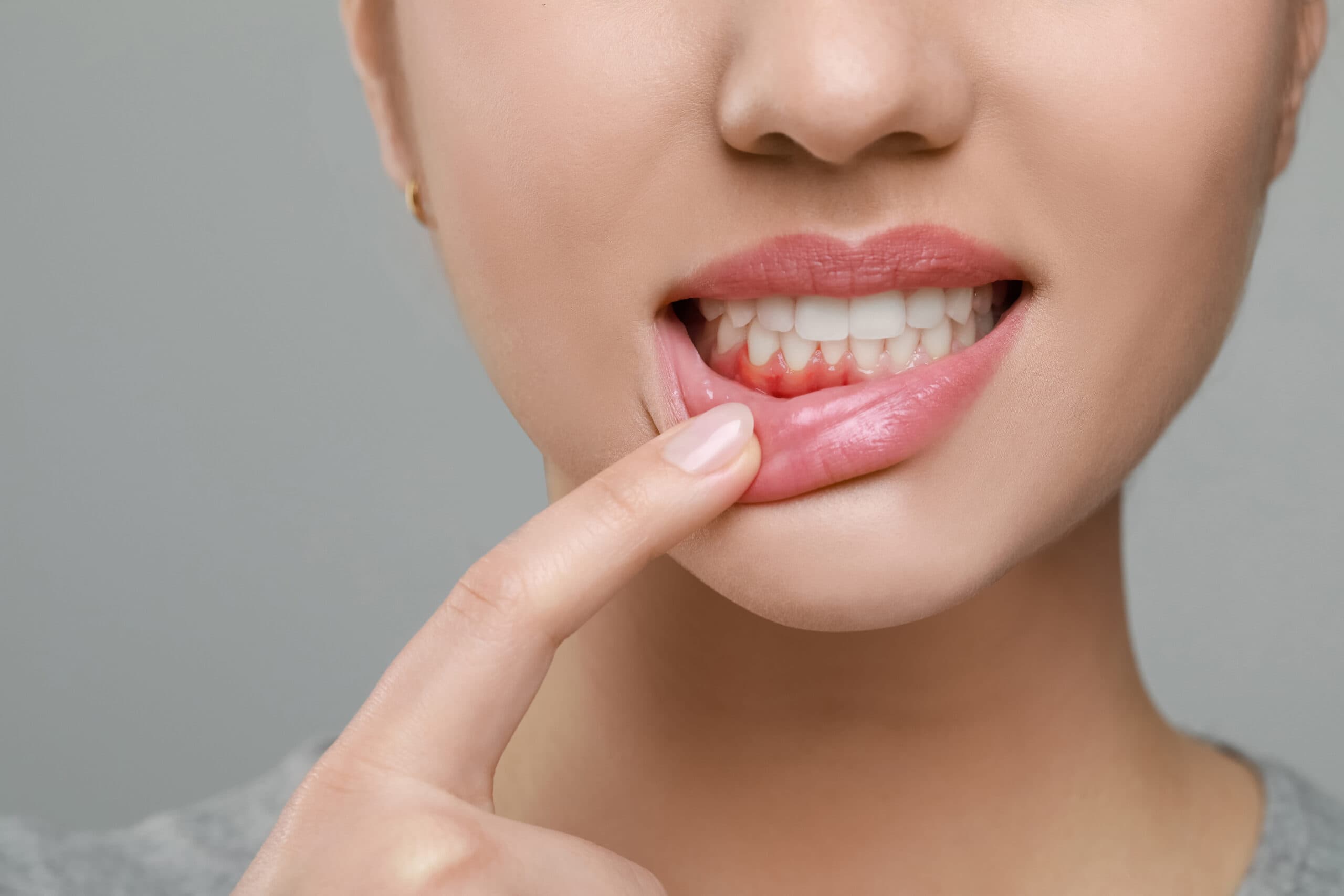Not all gum pain is a sign of something serious—but it can be. The symptoms you have determine whether you can handle your gum issues at home through simple changes to your dental routine or whether it’s time to make an appointment with your dentist.
Brushing Too Hard
Most people first notice their gum pain while brushing their teeth. Quite often it is accompanied by blood and inflammation. If this is your situation, you may be brushing too vigorously. Gums are delicate and don’t respond well to harsh treatment. Make sure you’re using a soft bristle on either your manual or electric toothbrush and take it easy. Circular motions with your toothbrush, rather than back and forth movements, will do a better job at getting your teeth clean while gently massaging your gumline.
Flossing Technique
Is your flossing game on point? Because there is a right way and a wrong way to perform this essential healthy task. Glide floss in between your teeth mindfully following the curve of your gums. Flossing shouldn’t be painful or cause bleeding when it’s done correctly as part of your daily routine.
Gingivitis
When you don’t have a regular dental regimen, gingivitis is the likely culprit for your gum pain. It is the earliest and least severe form of gum disease. However, left untreated, gingivitis can lead to a severe condition called periodontitis. In addition to pain, signs of gingivitis include:
- Receding gums
- Puffy gums
- Bad breath
- Bleeding
The good news is that gingivitis is manageable. With daily brushing and flossing and regular trips to the dentist, this condition will clear up.
Periodontitis
If gingivitis goes untreated, gums become infected leading to periodontitis. This is a serious disease that can result in loss of teeth and destruction of bone and ligaments of the mouth. Signs include:
- Pain when chewing
- Poor tooth alignment
- Receding gums
- Pockets between the teeth and gums
- Persistent bad breath
- Sores on the inside of the mouth
- Loose or sensitive teeth
If you have these symptoms, it’s important to see a dentist as soon as possible. Advanced procedures are needed to clean the teeth and rid the mouth of the periodontitis. However, once it’s gone, regular brushing and flossing will help keep another infection from occurring.
It’s not uncommon for people to disregard their gum pain, but we recommend that you don’t. Left unmanaged, your issues might become serious health problems. If you have painful gums that worsen with time, give us a call at 828.277.5024.





